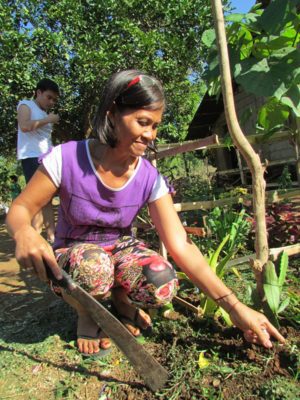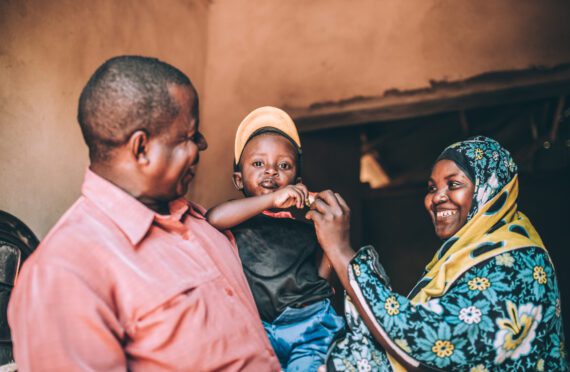By Averill A. Amor
Goyoden is a small, rural town on the coast of one of the islands in the Philippines. Growing one’s own food is a necessity in a rural community such as Goyoden.
But that has become increasingly difficult. Shifting weather patterns have begun to disrupt the usual growing season cycle.
The first time I visited Goyoden was as part of an undergraduate student immersion experience. Each of us stayed with a local family for a few days in an attempt to understand the Goyoden way of life. My classmate and I stayed with Nanay (informal word for mother) Nory.
Nanay Nory makes a living working in shellcraft and selling her products in markets on the mainland. Her husband is a tailor who works from home. They generate enough income between them to buy seafood from local fishermen as well as staple foods from the mainland. They occasionally cook with edible plants that they grow behind their house.
Nanay Nory is also part of a group of women involved in small-scale agriculture – planting crops in a common garden near her house.
Whenever she spoke to us about the garden, she would talk about how it had become more difficult to tend to the garden over time; she also mentioned that there were certain months in the year when they could not fish, plant, or both—which would put stress on their food supply.
When we asked her why it was hard to keep planting, she answered simply, “Mas mainit ngayon e.” Well, it is hotter these days.
For the Goyoden people, the stability of the seasons is essential for both their livelihood and nutritional needs. But they’ve come to realize that the seasons are changing; the dry season is getting drier—too dry to plant for some months—and the wet season is more erratic and unpredictable. There is no local term for climate change, but the community understands that the seasons are changing and keep adjusting, hoping for the better.
Goyoden is one community among many grappling with food insecurity as a result of climate change. Climate change is an issue with implications on the ground, most of all, and it is communities like Goyoden—the ones contributing the least to the problem—that are most in danger of suffering the consequences.
In the future, farmers may be hard-pressed to continue planting for profit, and fishermen dread the day their nets come up empty.
Averill A. Amor is a communication intern at Bread for the World.
Photo: One of the Nanays (mothers) tending to her garden in Goyoden. Averill A. Amor/Bread for the World.



